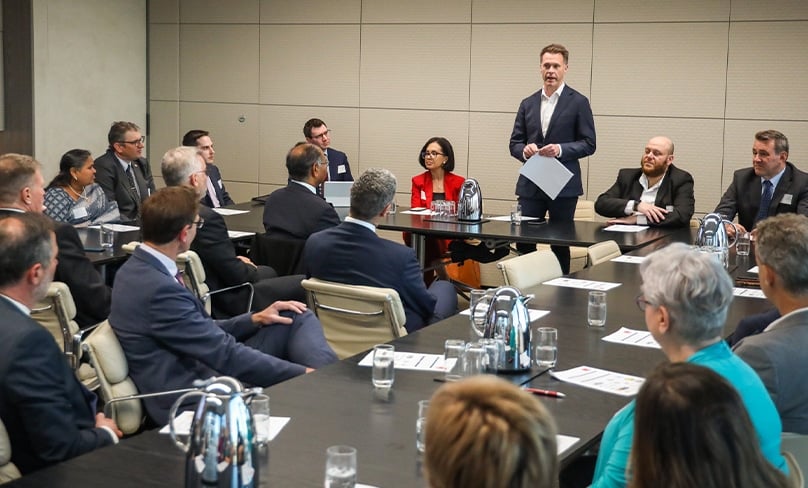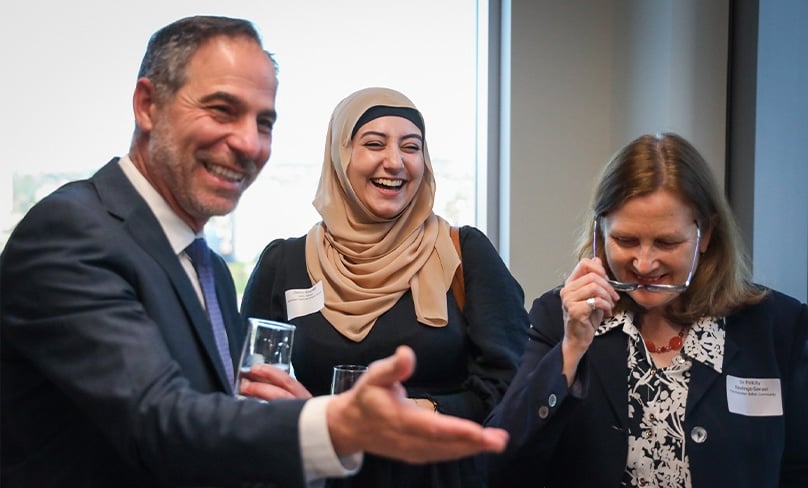
Healthy Church-State debate brings issues into focus clearly
I was privileged to be amongst the invited guests to the dinner with NSW Shadow Cabinet last week, and to offer the closing remarks amongst representatives of faith communities.
It was a lovely evening, with friendly conversation and warm camaraderie.
Now, I’m not naïve. The NSW state election is fast approaching and so it is in the interests of both major parties, particularly the Opposition, to be on good terms with religious groups, especially given that NSW is the most religious state in the country.
But even acknowledging the political benefit in such an event, it was still very enjoyable.
Opposition Leader Chris Minns used his speech to announce that, if elected, NSW Labor would pass anti-vilification laws within its first 100 days of office, and to refer the Anti-Discrimination Act 1977 to the NSW Law Reform Commission for review.
On the face of it, this seems like good news. However, there is a risk that it could be tokenistic rather than providing any meaningful protection for people of faith.
“Vilification laws aside, there are problems with the promised full review of the Anti-Discrimination Act by the NSW Law Reform Commission.”
In terms of the promise of anti-vilification laws, religious vilification has a greater impact on other faiths than it does on the Christian community.
This isn’t to say that Christians are any less the targets of hateful speech, but it doesn’t seem to elicit the same sensitivities as some faiths with a smaller proportion of the population.
It could even be argued that anti-Semitic and even Islamophobic remarks are already prohibited by law because the Anti-Discrimination Act already outlaws racial vilification, with the definition of “race” including “ethno-religious origin.”
Vilification laws aside, there are problems with the promised full review of the Anti-Discrimination Act by the NSW Law Reform Commission.
Already during this term of NSW parliament, a Joint Select Committee undertook an inquiry into Anti-Discrimination Amendment (Religious Freedoms and Equality) Bill 2020 (NSW), tabled by Mark Latham MLC.
The bill would have amended the Anti-Discrimination Act to prohibit discrimination on the basis of religious belief or activity.

The inquiry attracted close to 20,000 submissions in NSW, overwhelmingly in favour of passing the bill.
The Joint Select Committee found that there was no impediment to passing the bill prior to a federal religious discrimination bill being passed and recommended that the law be changed by the end of 2021. It also recommended a broad-based review of anti-discrimination law, including anti-vilification provisions, but that this should come after the Latham bill was passed.
By putting religious discrimination after anti-vilification laws and a broad review of the Anti-Discrimination Act, Labor’s election promise has the effect of reversing the priorities recommended by the Committee and relegating religious protections to the back of the queue.
What’s more, by expanding the NSW Law Reform Commission inquiry to include the entirety of anti-discrimination laws, there is a risk that existing exemptions will be removed and placing religious freedoms under threat, even more so than they are now.
Given this, I was ready to use my closing address to speak about religious discrimination and to raise some of the deficiencies in the NSW Labor plan, but I changed my mind at the last minute.
There will be plenty of time in the coming months to deal with the specifics of Labor and Coalition policy when it comes to religious freedom, so I used my brief remarks to reflect a little on how those in the room might better work together.
“I said that we should not paper over the cracks of our disagreement in order to be polite.”
I said that while we hear a lot about the need for a separation between Church and State, there are also benefits to us ensuring that there is good and robust dialogue between the two.
I explained that I thought both Church and State had a role in challenging and purifying the other; that if those who are called to civic or ecclesial leadership are supposed to exercise our roles in service to the community and the common good, then we should be able to hold each other to account in how well (or how poorly) we are doing this. I said that we should not paper over the cracks of our disagreement in order to be polite.
Rather, we should not be afraid to have vigorous debate about where we differ, so that together, we might chart the best way forward for the people of this state.
Such conversations should occur irrespective of who is in government at any particular time.
Anything less from the Church or the State would amount to failing those for whom we are supposed to be caring.
I’m looking forward to the next few months of looking seriously at the policies of those asking for our votes in March. I hope you are too.
